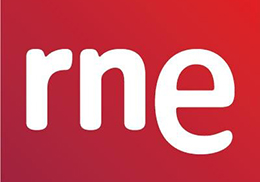
Statements made by Joaquín Maudos, professor of the subject in 'Risk Management' at the Universitat de València, for Radio Nacional de España's daily newscast 'Diario de las 2'.
2016 remains the year of panic on the global stock market. The main indexes have lost more than 10% of their market value since the beginning of January (here the IBEX-35 has, in three months, gone from surpassing the 10.000 points barrier to not even holding onto 8.000). A large part of the blame falls on the banking sector, which has plummeted (more than 30% this year 2016 alone, for Deutsche Bank, Crédit Suisse, Société Générale, or 40% for Unicredit).
Radio Nacional de España’s newscast Diario de las 2, led by journalist Fernando Martín, interviewed Joaquín Maudos, senior lecturer of Economic Analysis at the Universitat de València and a teacher for the Official Master’s Degree in Banking and Quantitative Finance, on the current market turmoil. Here is the transcript from that interview.
Why has yesterday’s rebound on the stock market slowed down? Why weren’t the quotes by Janet Yellen, President of the Fed, appreciated?
Joaquín Maudos: Well, they are worrisome words, her saying that the current financial conditions are less favourable for economic growth. It’s very alarming, coming from whom it’s coming: the president of the most important central bank in the world. And it’s a heavy blow because it adds on to other negative news from the last few days, such as the slowing down of almighty China’s GDP growth rate, falling prices on raw materials from emerging countries, and many other matters. What worries me is the suspicion that the States may delay the much awaited rise of their interest rates, for that is undeniable proof that global growth is worrying them a lot.
On the stock market all eyes are on banks, the most punished. A few days ago we discussed Deutsche Bank, a systemic bank. Today another large bank, Société Générale in France, is getting walloped, despite profits skyrocketing. What is happening to banks?
J.M.: Well, the European banking sector has a problem, and this is a problem of very low profitability, for many reasons. One, because interest rates have hit rock-bottom. The ECB brought out the heavy artillery, and when interest rates are low and ready to stay for the long-term banks have very small margins: they cannot bring in money.
Secondly, European banks in certain countries – Italy, to be exact – own large volumes of unproductive assets, defaulters. They cost two hundred billion [euros]! And a debtor is an asset that produces nothing, yet is costly for the bank to maintain. That’s why it’s not surprising that Italy is ready to create a “bad bank”, like Spain did with Sareb.
And lastly in third place, European banks have yet another problem: new regulations demand more and more assets, and assets are very expensive to obtain. They are so expensive that the numbers do not add up: the profitability of European banks is lower than costs per asset. In other words, banks are not giving investors what they require to invest on the market. So they get penalised with falling share prices.
The interview may be listened to here, while the whole program is available here.








